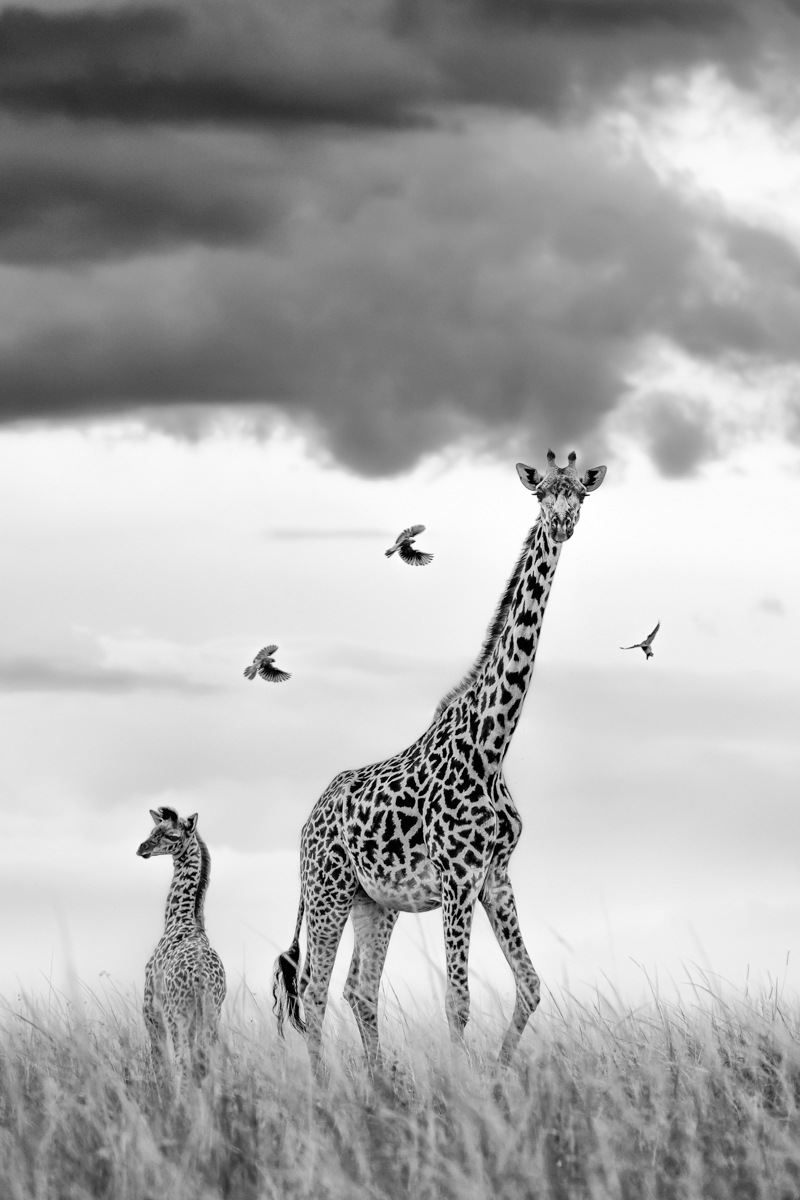
“Hallelujah” by Preeti and Prashant Chacko (Kenya). Winner, The Greatest Maasai Mara Photographer of the Year.
“We had spent a good deal of time with a small journey of giraffe, made notable by the antics of this youngster, who was keenly exploring its surroundings at a reasonable distance from its mother. Our guide Jackson told me to be prepared for when the calf would return to the mother, as that usually results in something memorable to photograph. The calf returned but what transpired was beyond what we expected, with the oxpeckers seeming to us like angels singing Hallelujah!”
As one of Africa’s most important wildlife reserves, Kenya’s Maasai Mara is filled with countless animal species. This makes it a go-to place for wildlife photographers wishing to take images of the leopards, elephants, cheetahs, lions, and giraffes that populate the reserve. Since 2018, The Greatest Maasai Mara Photographer of the Year contest has honored these photographers by highlighting the best images taken on the reserve.
This year, Kenyan photography duo Preeti and Prashant Chacko won the top prize for their beautiful black and white photo of a giraffe and her calf surrounded by oxpeckers. Their award-winning photo Hallelujah earned them the $10,000 cash prize and a five-night safari for two. In addition, their guide Jackson was also rewarded for his part in helping them take the winning image. For his efforts, he’ll receive a fully inclusive trip to the Kruger National Park in South Africa.
“The emotion of a mother-child interaction is something that we love to photograph,” admits Preeti. “And so we waited. What transpired through exceeded all our expectations. Three oxpeckers flew up into the sky at the moment of reunion, almost as if to say: ‘Hallelujah.’”
The photograph made a big impression on the judging panel, which was tasked with selecting a winner from 50 finalists. Their primary judging criteria was to look at how the photographers captured something ordinary in an extraordinary way. “This is a very clean and powerful image,” shares professional wildlife photographer and judge Federico Veronesi. “The three birds in flight perfectly connect the mother and her calf.”
While the contest is primarily about photography, it also gives back to the boots-on-the-ground conservation initiatives that care for the land. Every entry fee for the contest goes, in full, to one of the competition’s conservation partners active in the Maasai Mara. This year, thanks to over 1,000 entries submitted by 300 photographers, over $15,000 was raised. The proceeds were shared between the Anne K. Taylor Fund, The Maa Trust, the Mara Elephant Project, the Mara Conservancy, The Sheldrick Wildlife Trust, and the Angama Foundation, which hosts the competition.
Entries for the next edition of the contest open on January 1, 2023, with the same prizes up for grabs. And, if you want a piece of the Maasai Mara in your home, select prints are also available for sale.
The winners and finalists of the Greatest Maasai Mara Photographer of the Year show the beauty of Africa’s most well-known nature reserve.
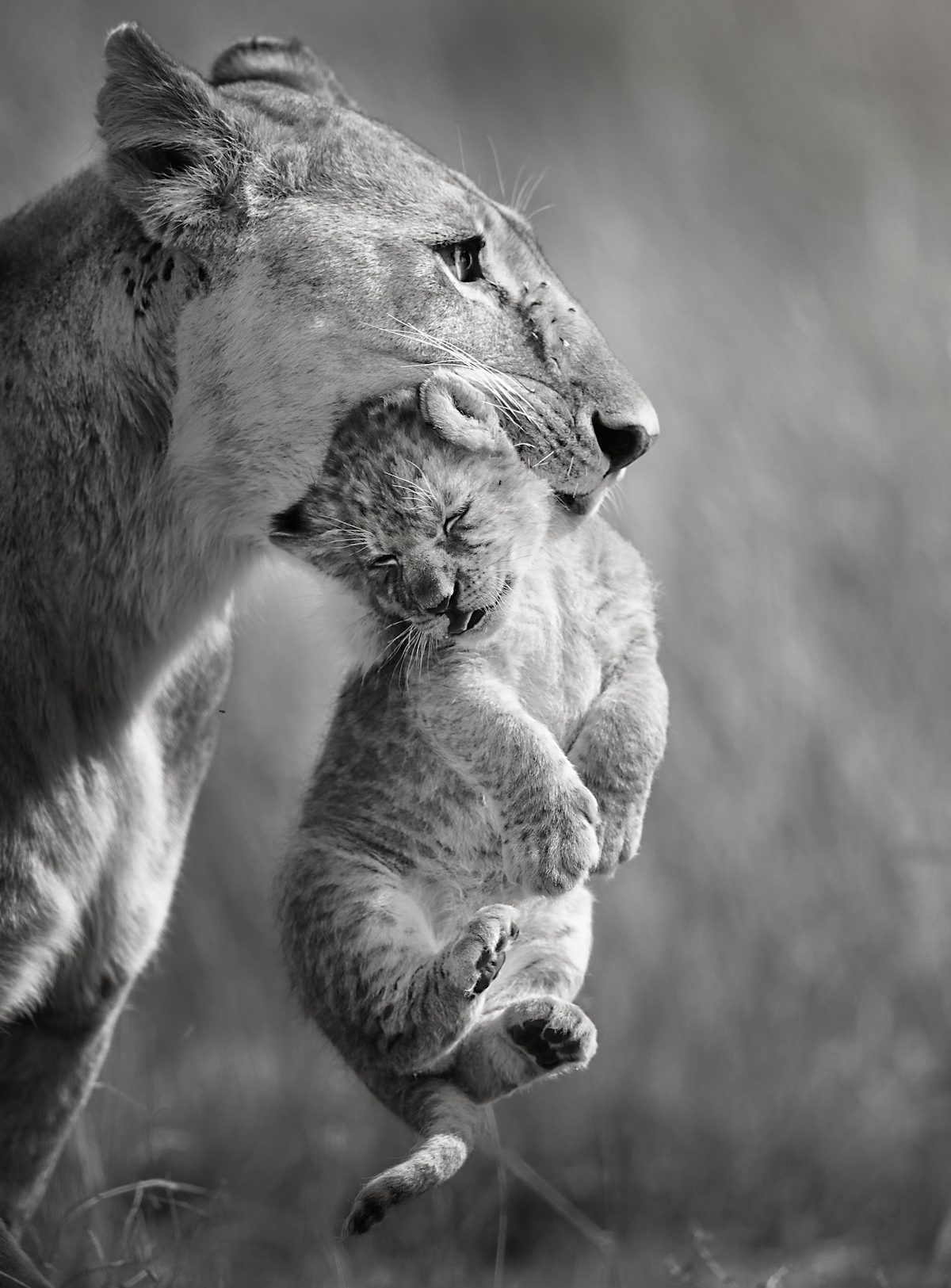
“Little Mush” by Vicki Jauron (USA). Finalist.
“We had seen this lioness a few days earlier and could tell that she was a new mother, but she was hunting and the cubs were hidden away somewhere. We searched a few times to find her with her cubs and on our last day, we were successful. It was a lovely morning and dad was around soaking up the sun while mom and her sister took the cubs on a walkabout. What made this all the more exciting was that there were very few vehicles nearby and so she had the ability to move without interruption.”
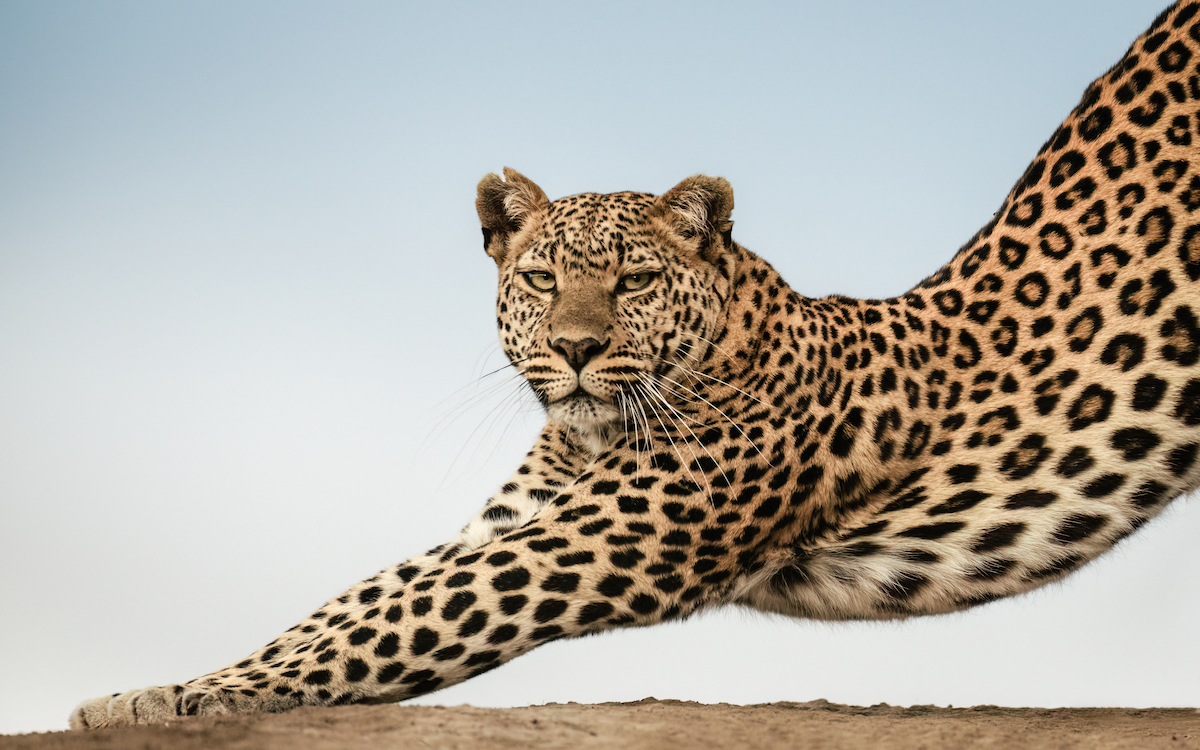
“Stretch” by Kunal D Shah (Kenya). Finalist.
“Watching Nalangu kill an impala that afternoon was incredible. However, due to the size of the kill, it was impossible for her to carry it back for the little one. She walked to the usual hideaways and brought him out after about an hour of waiting. As she guided the cub to the kill, I realized we could get an amazing shot of her on her return, from the bottom of a river crossing. We quickly rushed to the bottom of the river bed and waited. She not only walked by it, but she stretched and looked towards us.”
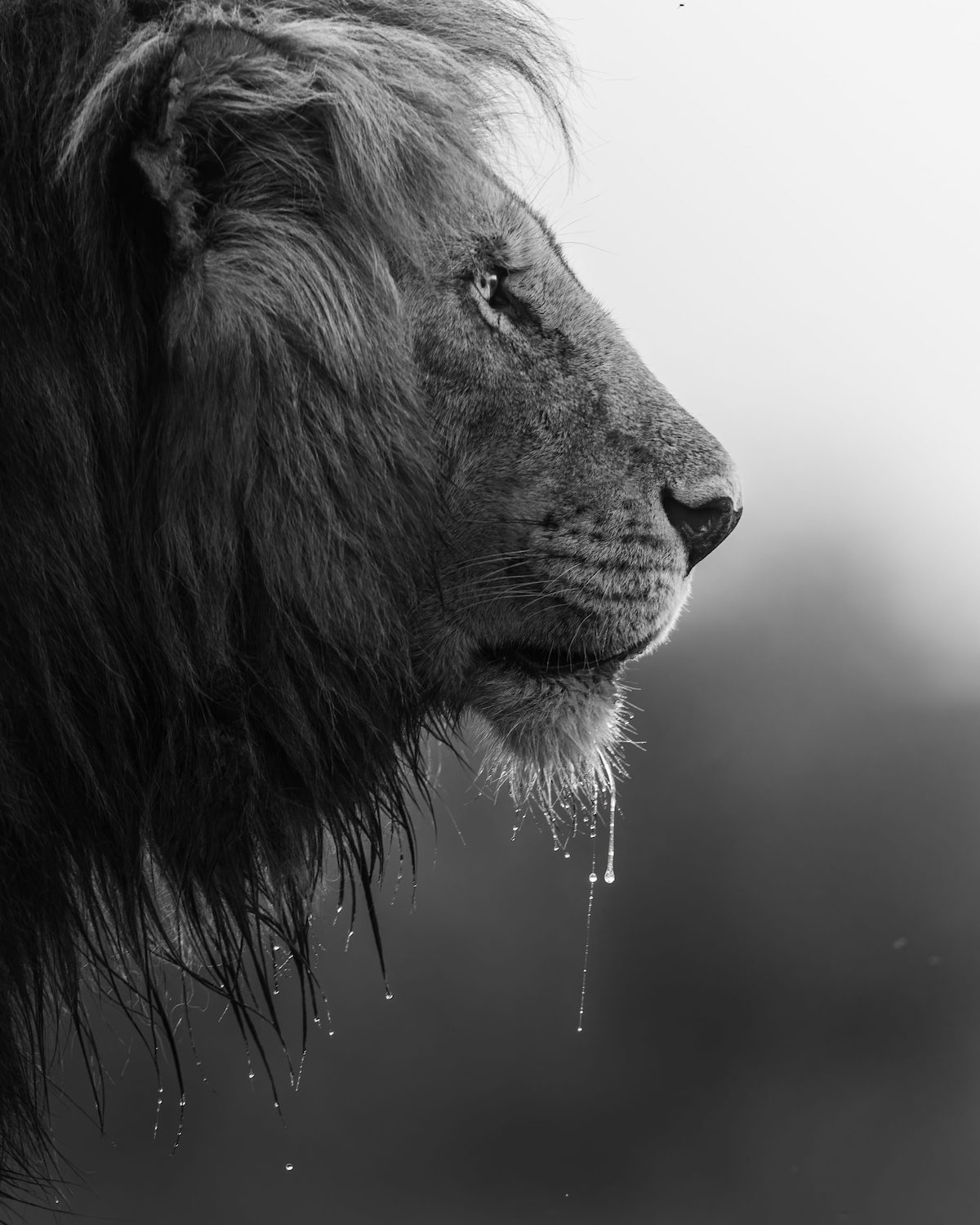
“Droplets” by Andrew Liu (USA). Finalist.
“We found Short-Tail lounging just after sunrise. He graced us with a little drink from a nearby puddle, resulting in this beautiful dripping of water from his mane and beard.”
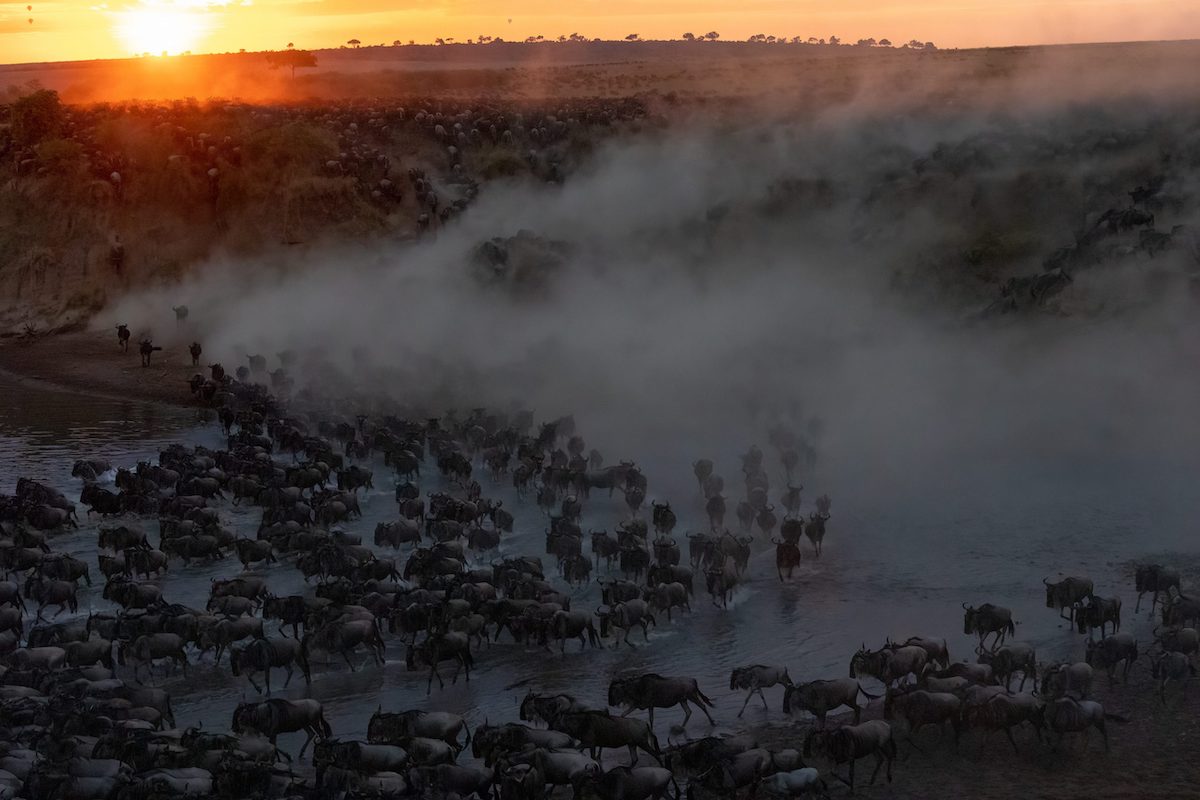
“Sunrise Crossing” by Charlie Wemyss-Dunn (USA). Finalist.
“Our guide encouraged a quick departure from camp early one morning as we’d previously seen a massive herd eager to cross over to the Triangle from Lookout Hill the evening before. Before we reached the river, a call from one of our other vehicles came in that the massive herd had just begun to cross at the Miti Moja crossing point. As we arrived we were greeted with a scene I’ll never forget as a mega herd of wildebeest rushed down the bank as the red glow of a perfect sunrise pierced the sky. We were one of only three vehicles on either side to take in this epic scene while the early morning balloons can be made out in the far background in front of the rising sun. Photography was not surprisingly a challenge given the very low and contrasting light so I had to sacrifice ISO for a sharp image with the whole scene in view. A once-in-a-lifetime scene of nature’s greatest show.”
All of the entry fees from the contest go to boots-on-the-ground conservation efforts at Maasai Mara.
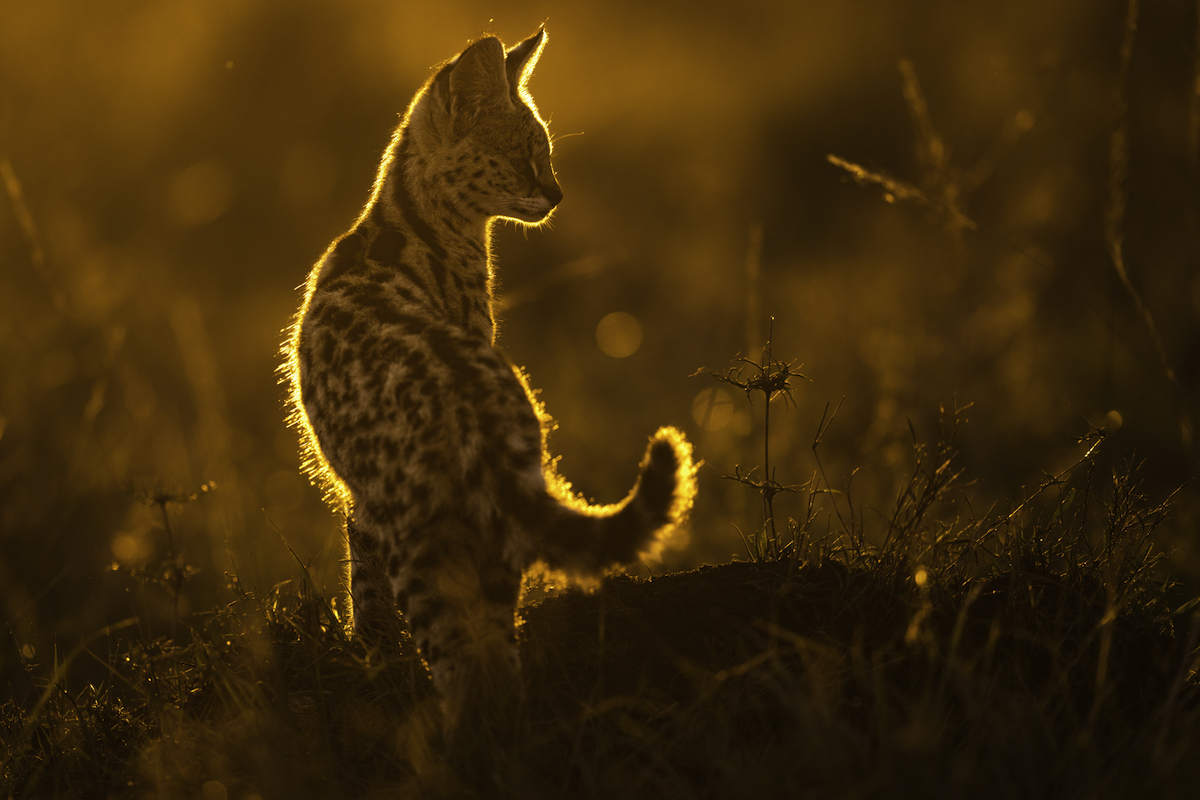
“Glowing Serval” by Vrinda Bhatnagar (India). Finalist.
“We watched this serval cat scan the area, finally pounce and prey upon a mouse, and then stand satisfied for a few minutes as the early morning sun lit up her fur from behind making a glowing halo around her.”
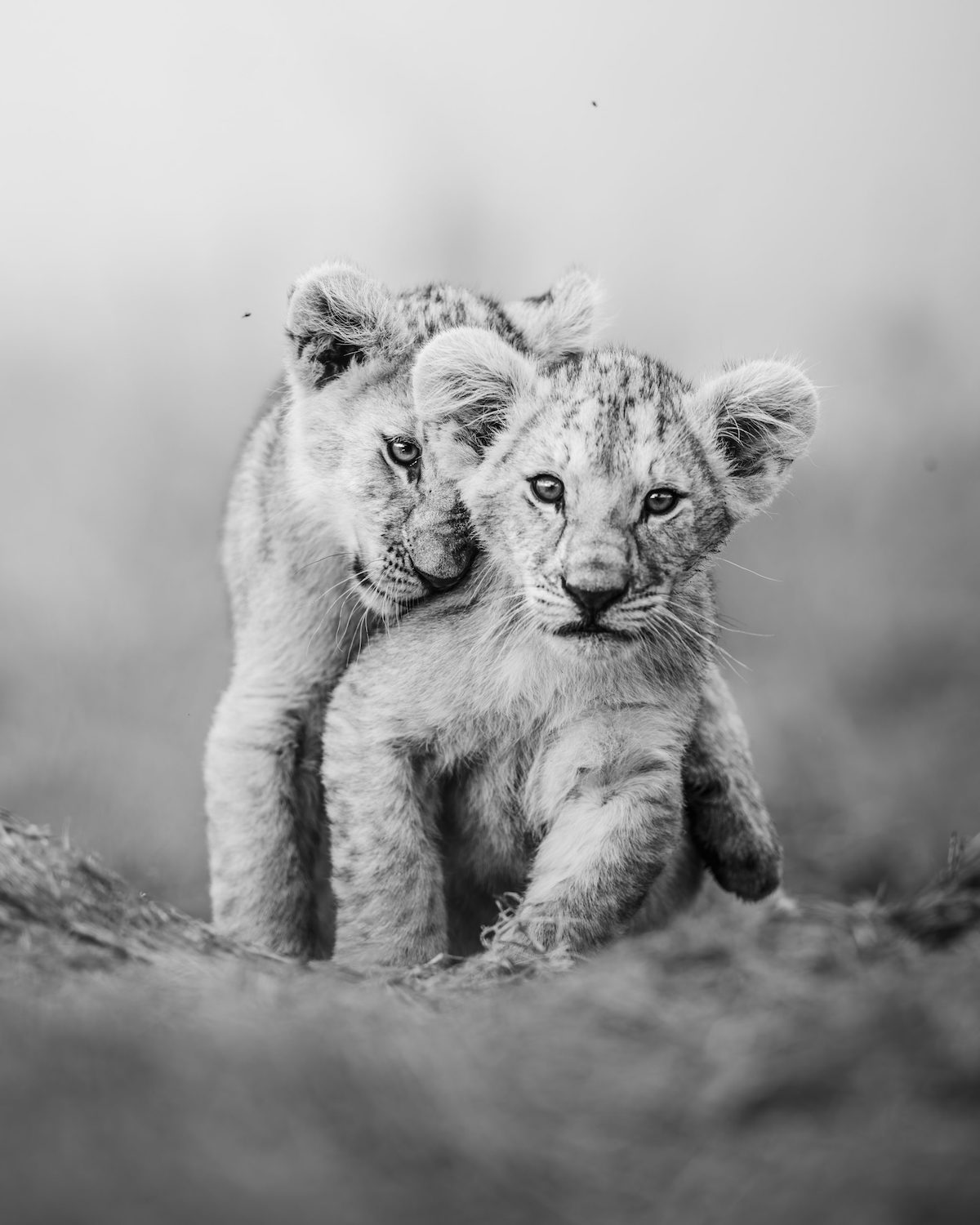
“Inseparable” by Andrew Liu (USA). Finalist.
“After an hour spent watching the cubs, they finally took notice of our truck and decided to come explore. I captured this image as they made their way toward us along the path.”
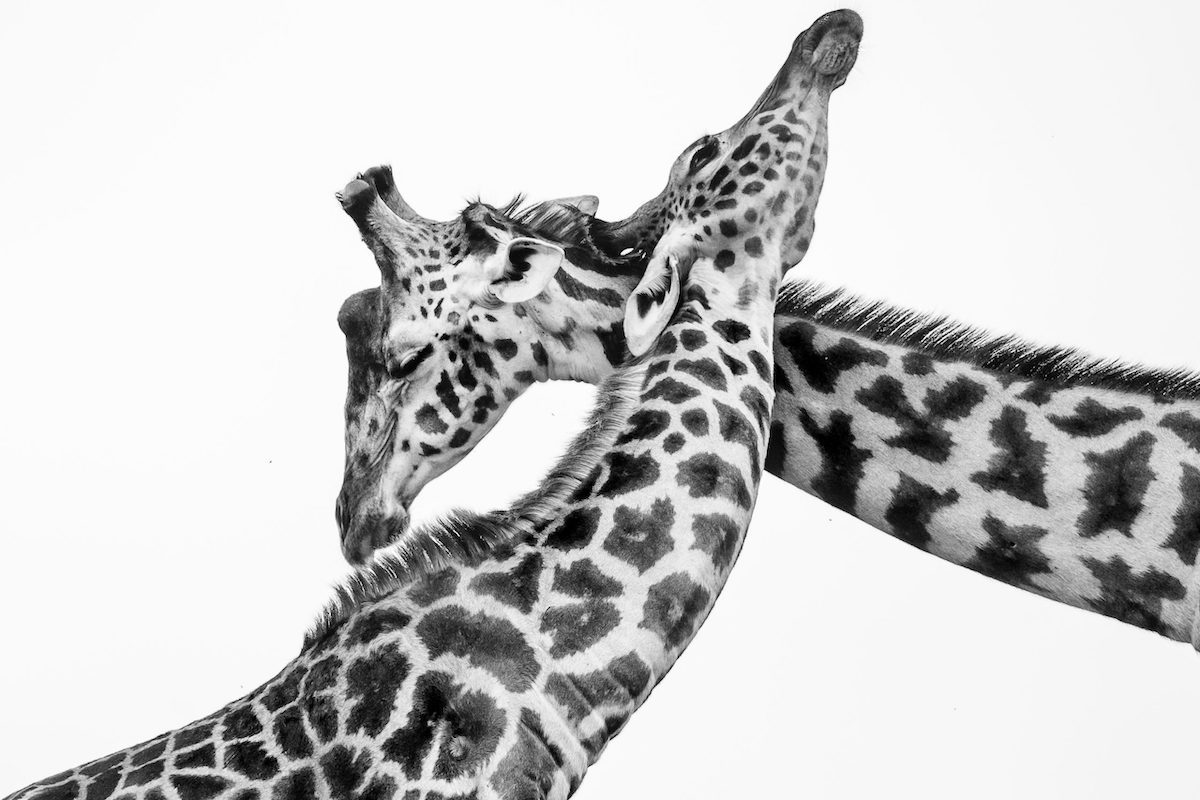
“Leaning Towers” by Abderazak Tissoukai (UAE). Finalist.
“I got to understand with time that powerful wildlife images are the ones that translate an emotion, which is often the result of the interaction between two or more animals. My experienced guide and I discussed this topic on several occasions in order to ensure his vision was aligned with mine. Luck was on our side when we crossed paths with these two young adult giraffes during their necking practice session. We noticed they were doing it in a quite friendly way, to avoid hurting each other as the moment of force generated by the movement of their long necks could indeed be harmful in real fight situations. When they went a bit too hard, a moment of care and affection almost immediately followed, as if it was their own way of saying ‘sorry’. I felt this one was one of them.”
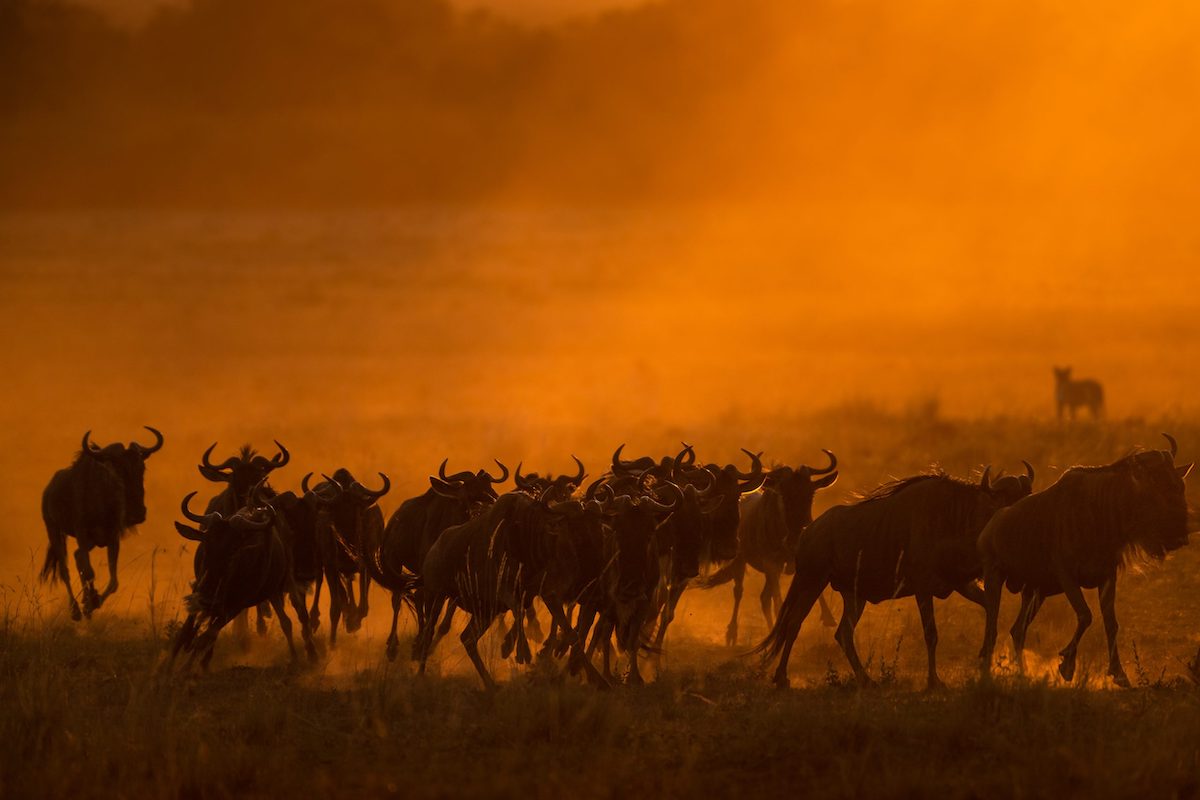
“Danger out of Dawn” by Silka Hullmann (Germany). Finalist.
“Almost immediately after leaving camp, we encountered a group of three lionesses
strolling through the still dewy grass in search of prey. Hoping that the cats would still be somewhat active in the early morning hours and that we would get pictures in good light, we followed them along the Mara River. Suddenly, startled by the danger from the now blood-orange-red dawn, a group of wildebeest ran straight at us and disappeared into nothingness. We were rewarded: the morning sun and the dust of the savannah gave this brief moment in a beautiful play of colors and an almost mystical mood.”
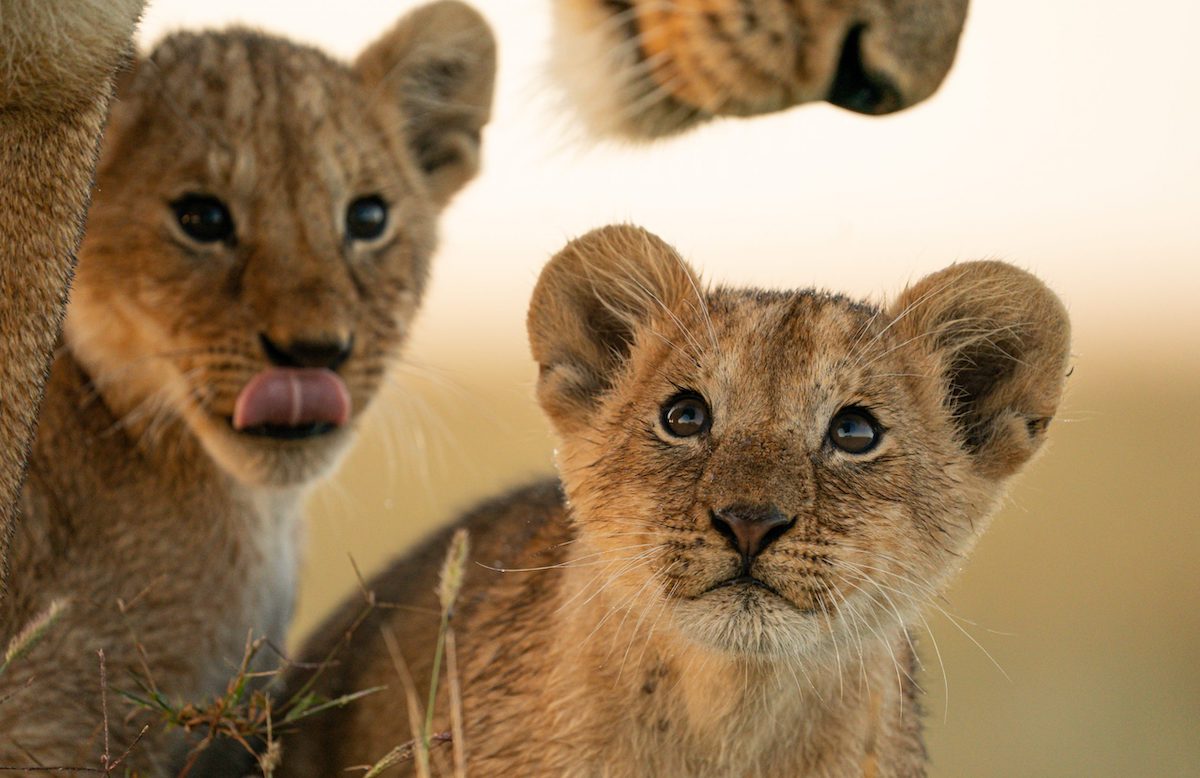
“The Probing Eyes” by Ashish Ranjan (UAE). Finalists.
“It was a beautiful morning safari in the Maasai Mara when our guide decided to take us to the Topi Pride as they had been seen roaming in their territory looking for food. We spotted the cubs near the foot of the hills where they are known to live. We waited for more than 45 minutes before we could see the pack of lionesses coming towards their cubs. In anticipation of good moments of them meeting their waiting cubs, we positioned our vehicle close to an anthill hoping that the lionesses would climb over it and the cubs would follow. We were proven right and when one of the lionesses went up to her cubs, we got our moment where we took some close-up shots in the warm morning sunlight. One such moment was this where I intentionally kept the mother almost out of the frame and only focused on the eye of the cub resulting in this shot.”
The Greatest Maasai Mara Photographer of the Year: Website | Facebook | Instagram
